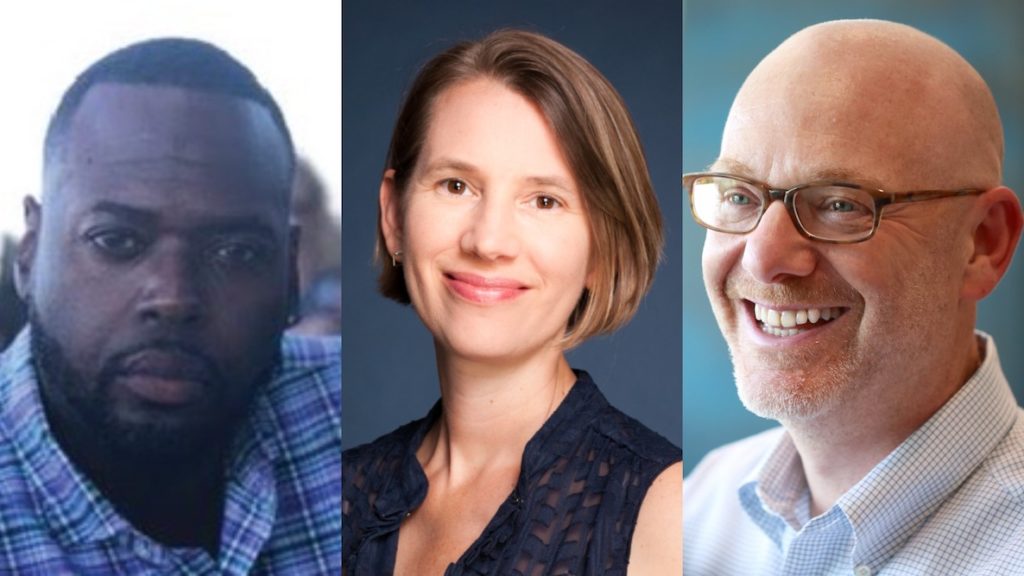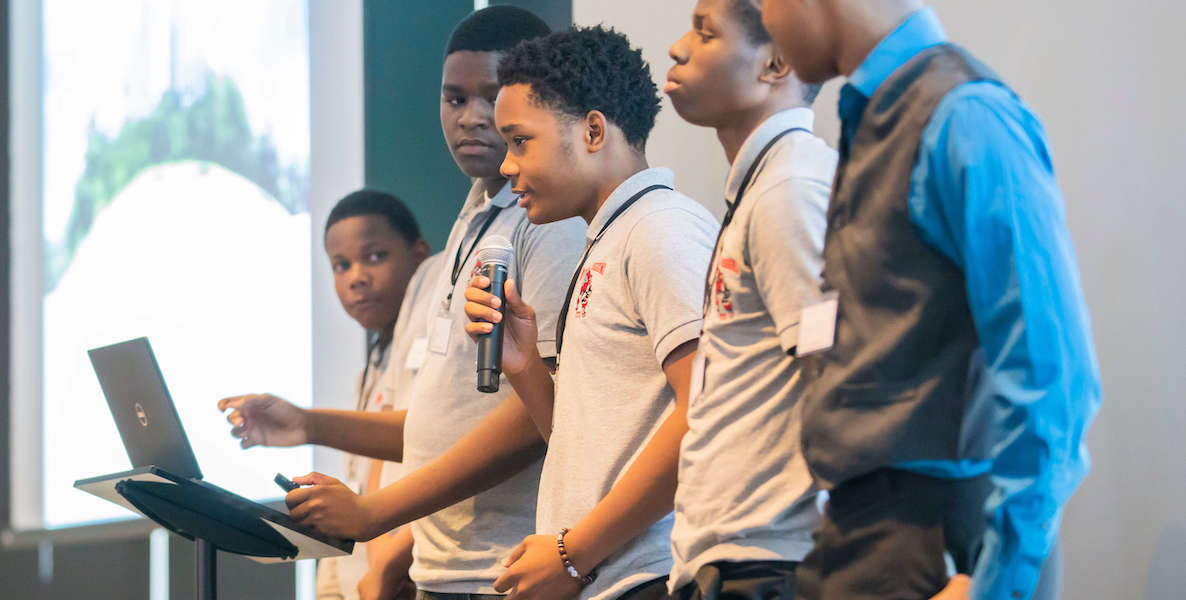Toni Damon is the award-winning principal of Murrell Dobbins, a public college prep technical high school in Philadelphia, and has a doctorate in education. She is warm and witty, at once smart and serious but also totally relatable, down-to-earth. You can see why students respect and admire her, and also feel comfortable turning to her candidly.
But until a few years ago, even she—like countless other Americans—didn’t know much about the stock market, how it worked or how to get in on it wisely.
“I was born and raised in the North Philadelphia community, and I didn’t know anything about stocks, despite my level of education and income,” she says.
But now, through a program called Philadelphia Financial Scholars, Damon is investing, and growing her income through the stock market. “To me, this is just unlike anything I would’ve ever thought was possible 25 years ago when I started working in education,” Damon says.
MORE ON WEALTH-BUILDING PROGRAMS
Philadelphia Financial Scholars is a nonprofit that aims to help Philadelphia high school students—as well as their teachers and families—develop wealth-building tools through access to financial literacy and entrepreneurship education.
The first iteration of the program was launched in 2016 by the FS Foundation, the philanthropic arm of the Philly-based asset management firm FS Investments, in partnership with Penn’s Netter Center for Community Partnership. Since its inception as a pilot program at Boys’ Latin, it has grown to operate in 15 public and charter schools, reaching more than 1,500 students.
And this past February, as the pandemic continued to highlight the power of collaboration across sectors, additional partners from the corporate, academic, and philanthropic realms came on board to help scale the program further, by contributing money, volunteers, and operational expertise. They include bold-faced names from organizations like Hamilton Lane; Clark Capital Management Group; Brinker Capital; Faegre Drinker Biddle & Reath; Permit Capital Advisors; Philanthropi; EY; DiverseForce; Stradley Ronon; The Enterprise Center; TIFF Investment Management; Dechert LLP; Macquarie Asset Management; Spouting Rock; Argosy Capital; and Glenmede.
“The Philadelphia financial services community has always been generous, but this is the first time we’ve all coordinated on such an ambitious mission,” says Mike Gerber, Chair of the Philadelphia Financial Scholars board and a long-serving executive at FS Investments. (Full disclosure: FS Investments has supported The Citizen’s Ideas We Should Steal Festival.)
“We look at it through that multigenerational lens because we’re trying to help drive a culture,” Gerber says. “If we deliver the content to the kids and to the adults in their lives, we can change a culture. To really change the trajectory for a family, you have to educate more than just one generation.”
The program is multipronged: There’s the high school curriculum, woven throughout the school day. It was developed by Penn Business Strategy Professor Keith Weigelt and is now a program of Penn’s Netter Center which, since 1992, has been Penn’s primary vehicle for advancing civic and community engagement at the University. It aligns with the Commonwealth’s Common Core standards, and addresses timeless subjects like the stock market, rules of investing, and budgeting, but also real-world, everyday topics like managing your credit score, avoiding scams, choosing a debit and credit card, and smart shopping. Netter trains teachers in executing the curriculum, and provides ongoing support to teachers and students as they need it.
There’s also an entrepreneurship curriculum, offered as an extracurricular activity, which culminates in a pitch-style competition. This year’s winners and their businesses—which included ideas like customized computer keyboards and a teen podcast, for example—won $1,000 to use towards their start-up, and placement in the Summer Business Incubator program at the University of Pennsylvania’s Wharton School of Business.
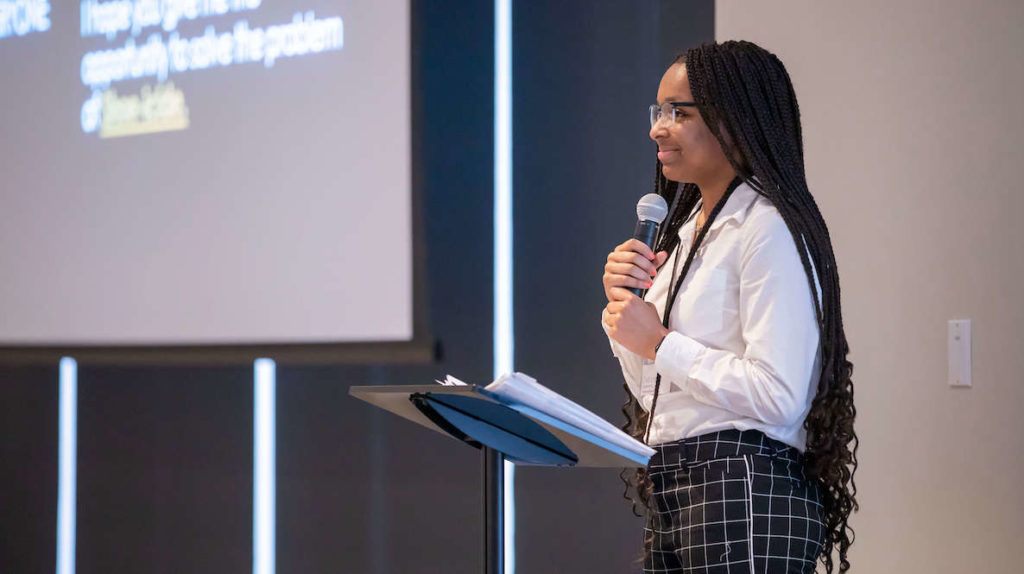
And then there’s what is perhaps the key difference between this and other financial literacy programs in the city: the adult education component. Parents, teachers, and staff are all invited to evening and weekend sessions to learn the same skills as the high school students.
“We look at it through that multigenerational lens because we’re trying to help drive a culture,” Gerber says. “If we deliver the content to the kids and to the adults in their lives, we can change a culture. To really change the trajectory for a family, you have to educate more than just one generation.”
Damon, the principal at Dobbins, says that the invitation to educate adults in the community is what really stood out to her.
“When you think about everyone who touches a child being equipped with this type of information and understanding, there’s a power that it brings to children and families,” she says. As a college prep school, Dobbins doesn’t see financial literacy as an add-on, she says. “This is something that must happen for our students, and we felt committed to making sure that students have this opportunity. The teachers absolutely love teaching it and the students are better for it as well.”
“When I was in the program, it made me realize I could do much more with my future than what I’d originally thought,” says Dobbins rising junior Michaela Hamlin.
Survey data of adult participants has shown that 98 percent report a change in how they make investment decisions; 91 percent report a better understanding of the stock market; 90 percent are saving more money than they were 12 months prior; 89 percent have increased dollars invested in the stock market; and 69 percent feel more secure about their financial future.
Of course, a family can learn everything under the sun about budgeting, but it’s fruitless if there’s no money to budget. People can’t build wealth if they don’t have steady employment, reliable childcare, opportunities for advancement in a workplace; they can’t save if they also have crushing medical debt, or the threat of eviction, or lack a safe home and safety net of people supporting them.
Philly Financial Scholars is just one tool to help lift Philadelphians out of poverty, something Gerber acknowledges.
“While we obviously believe deeply in the value of both financial literacy and entrepreneurship education, we recognize that it’s entirely for naught, or won’t do nearly what it can, if we don’t address the systemic issues that plague our underserved communities,” says Gerber. “We recognize that, alone, the education we’re providing through this program isn’t enough.”
Instead, it’s part of a much broader set of solutions that Gerber and his colleagues throughout the city are trying to help drive, and it’s at the heart of FS Investments, which strives to democratize investing, making it accessible for every level of investor.
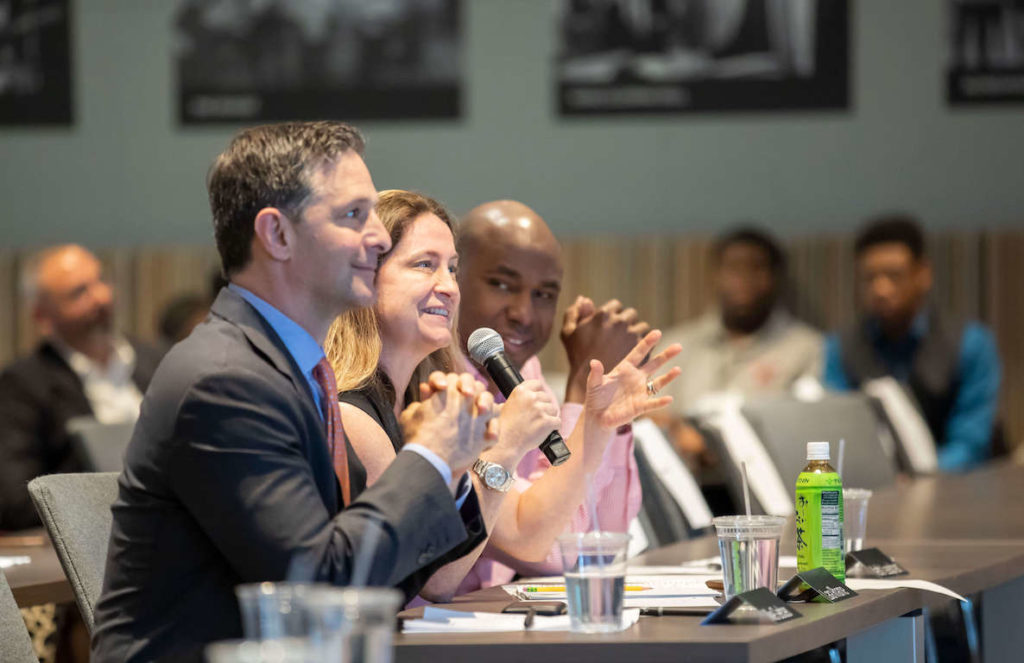
With all of that in mind, the real secret sauce embedded in PFS just may be the network it creates for students, the connections it forges: to titans of industry, yes, but also to Penn students, who serves as mentors to the high school participants and model for these teens what their lives as young adults can look like. Because it’s not just financial capital that people need to succeed: It’s social capital, networks of mentors and coaches and people who will connect you to jobs, give you letters of recommendation, provide you with guidance and advice—those tools that so many middle- and upper-class families take for granted.
“By having Penn students as mentors, my students don’t see going to Penn as being so unattainable,” says Damon. “The Penn students and professors build confidence in our children that no matter what barriers come their way, they have the tools, resources, and—now—networks to push through those barriers.”
Ann Ngyuen, a senior at El Centro High School who will be attending Illinois Tech next fall, says that networking may be the most important piece she gleaned from the program—and that it just may draw her back to Philly down the road.
“Because I’ve already had this connection with Penn and Wharton and this program, there’s definitely a higher probability of me coming back to Philly to plant roots one day,” she says. With the coaching of her Penn mentor through the entrepreneurship program, Nguyen came up with the idea of “Custom Keys,” personalized computer keyboards that speak to the increasingly popular trend of young people customizing and personalizing the items they use most.
“This is just unlike anything I would’ve ever thought was possible 25 years ago when I started working in education,” Damon says.
She pitched her creation to PFS board members including Keith Leaphart, the CEO of Replica Creative and founder of Philanthropi; Sulaiman Rahman, the founder and CEO of DiverseForce; Lara Rhame, Chief US Economist at FS Investments; and Brian Gildea, Head of Investments at Hamilton Lane.
“When I was in the program, it made me realize I could do much more with my future than what I’d originally thought,” says Dobbins rising junior Michaela Hamlin, whose pitch centered on her team’s idea to launch a teen podcast as a vehicle to center young voices. “I have other people to turn to for support and advice. I can call my mentors or text them any time.”
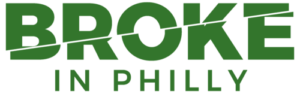 Michaela’s teacher, Anis Taylor, says it’s no small thing to know that there are people outside of your immediate world who can help you. “It means a lot to have so many stakeholders at the table, and other people invested in our students,” he says. “They’re in the weeds with us, they actually know our students. It’s so valuable to have so many people not just talking about making a difference, but actually coming to our classroom and helping us with the learning.”
Michaela’s teacher, Anis Taylor, says it’s no small thing to know that there are people outside of your immediate world who can help you. “It means a lot to have so many stakeholders at the table, and other people invested in our students,” he says. “They’re in the weeds with us, they actually know our students. It’s so valuable to have so many people not just talking about making a difference, but actually coming to our classroom and helping us with the learning.”
Gerber hopes to expand PFS to other schools within Philly, as well as to other cities, replicating the collaboration between business, academia, and philanthropy. The operational planning is underway, and the collaboration between so many large players in Philly will bolster the effort.
“This is all just an exciting example of people coming together to do good together,” he says. “I’m hoping that we’ll have a significant impact over the years.”
The Citizen is one of 20 news organizations producing Broke in Philly, a collaborative reporting project on solutions to poverty and the city’s push towards economic justice. Follow the project on Twitter @BrokeInPhilly.
Header photo shows youth participating in the program's pitch-style competition, pre-pandemic.

